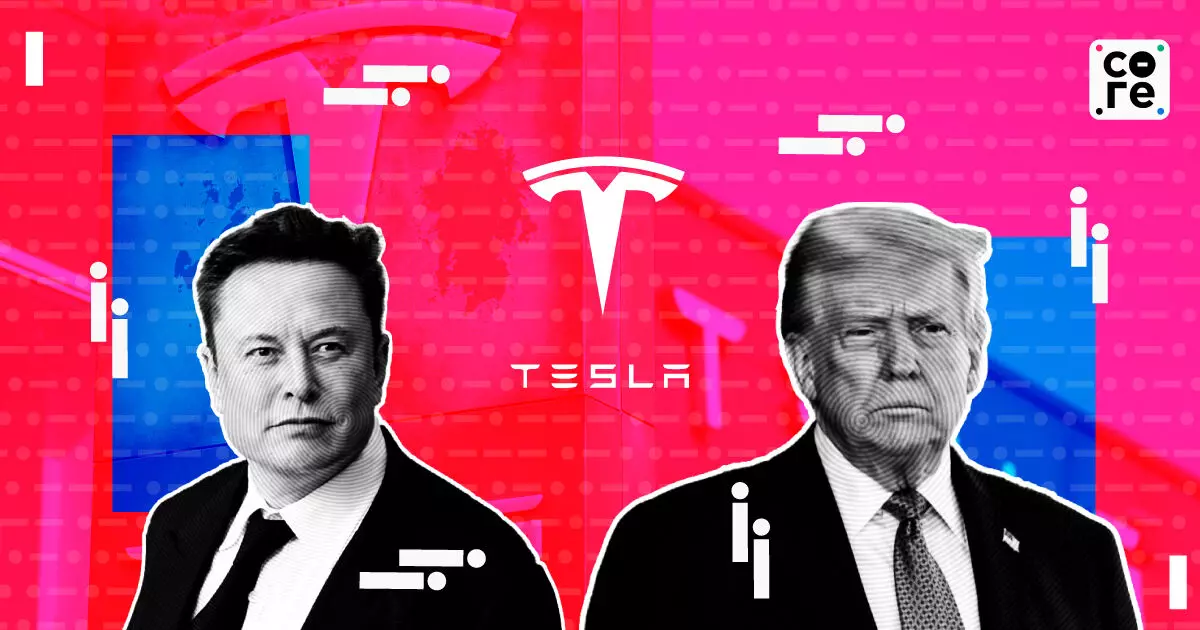
As Trump And Musk Clash, The World Learns A Lesson
When Tesla finally set foot in India, many saw it as a diplomatic win. But with Elon Musk and Donald Trump now publicly clashing, that bet is rapidly unravelling.

The world was treated to an intense, inexplicable, and highly public spat between US President Donald Trump and Tesla founder Elon Musk.
While the exchange may appear confined to the United States, the lessons behind it—and the events leading up to it—should concern both business leaders and policymakers across the world.
India, as we’ll recall, went several extra miles in its effort to bring Tesla into the country. It didn’t work—not for lack of enthusiasm, but perhaps because there was too much of it.
The real reason lies elsewhere: Tesla’s declining sales in several international markets and, more broadly, the slower-than-expected adoption of four-wheeler electric vehicles worldwide.
As things stand, Tesla is not setting up a manufacturing facility in India, just as The Core Report had predicted over the past several months.
What the company has done instead is lease mid-sized showrooms in Delhi and Mumbai, along with a yard, presumably to store and service imported vehicles it plans to sell in the Indian market.
Last week, Heavy Industries Minister H.D. Kumaraswamy confirmed as much. “We’re not actually expecting from them. They’re planning to start with showrooms,” he said, while announcing the guidelines for the Scheme to Promote Manufacturing of Electric Passenger Cars in India (SPMEPCI).
But the real story was never just about Tesla’s cars or even Musk’s Starlink satellite broadband system—which, quite bizarrely, is bulldozing its way into India by piggybacking on the marketing networks of its two biggest potential rivals: Reliance Jio and Bharti Airtel.
Trump Versus Musk, And the Fallout
At the core, this was always about something else: Musk being treated as an informal extension of the Trump family, handled more gently because of what his proximity to Trump symbolised.
And less because of the technological superiority of his products, good as they may be.
But with Trump and Musk in the middle of a verbal equivalent of a schoolboy scrap during lunch hour, where does that leave us?
The Washington Post reported on Sunday that NASA and Pentagon officials are urging competitors to quickly develop alternative rockets and spacecraft to Musk’s SpaceX, after President Donald Trump threatened to cancel SpaceX’s contracts and Musk’s defiant response.
Government officials were apparently stunned after Musk said — and later recanted — that SpaceX would stop flying its Dragon spacecraft, a move that would leave the space agency with no way to transport its astronauts to the International Space Station.
The threat has apparently alarmed officials at NASA, which entrusts SpaceX with the lives of its astronauts, and at the Pentagon, which relies heavily on the company to launch its most sensitive satellites, said the Post.
There might be legislative ways to ensure the rockets remain available to the United States should it want to deploy them, and matters may not reach that point.
But the threat, and its implications, are clear.
Which brings us back to India’s own attempts to appease Musk.
Possibly we did not have much choice. Remember, the tariff cloud has been hanging over India ever since Trump was elected, and in the run-up to his re-election.
Trump has a different businessman-style of functioning, and his broad embrace of Musk did suggest that opening the doors to Musk’s businesses might smooth the road in the more complex political and geopolitical discussions with the US, including on trade.
What now. There are two ways this can go.
One, the Trump-Musk war moves into a zone of subdued but longer-term hostility.
That would mean no business dealings beyond what already exists, or at the very least, not the smooth path that had existed so far.
In some ways Musk had already exited his Government role even as Tesla shareholders protested the plummeting stock price.
The other possibility is that the two will smoke the peace pipe, and things will return to something close to normal, at least in the business context.
When Business And Politics Collide
Either way, it would appear that the excessive outreach to Tesla, or Musk’s companies more broadly, will have to be tempered, if not rolled back.
India, too, will need to shift into reverse gear on the relationship, even if slowly, or let it evolve organically, so to speak.
Arguably, it had already reached that point, though for different reasons.
Either way, a valuable lesson has been imparted, and hopefully learnt.
Mixing business, politics, and friendship—even when fleeting or inevitable—is a tricky way to approach either business or governance.
Whether in the US, in India, or in this case, across borders.
In perfect hindsight, India’s courtship of Musk was perhaps not the best way to build bridges with Trump 2.0.
In India, businessmen may exert high levels of influence in the political sphere. But they largely stay in their lane, at least in the public eye.
Because they also understand that the power of the people is something only seasoned politicians can truly harness.
The Musk-Trump episode also offers a larger lesson for the political class.
Which is that relying too much on social media, or the people who control it, for political gains or outreach is a strategy fraught with risk at multiple levels.
And one that can backfire spectacularly.
When Tesla finally set foot in India, many saw it as a diplomatic win. But with Elon Musk and Donald Trump now publicly clashing, that bet is rapidly unravelling.
When Tesla finally set foot in India, many saw it as a diplomatic win. But with Elon Musk and Donald Trump now publicly clashing, that bet is rapidly unravelling.

